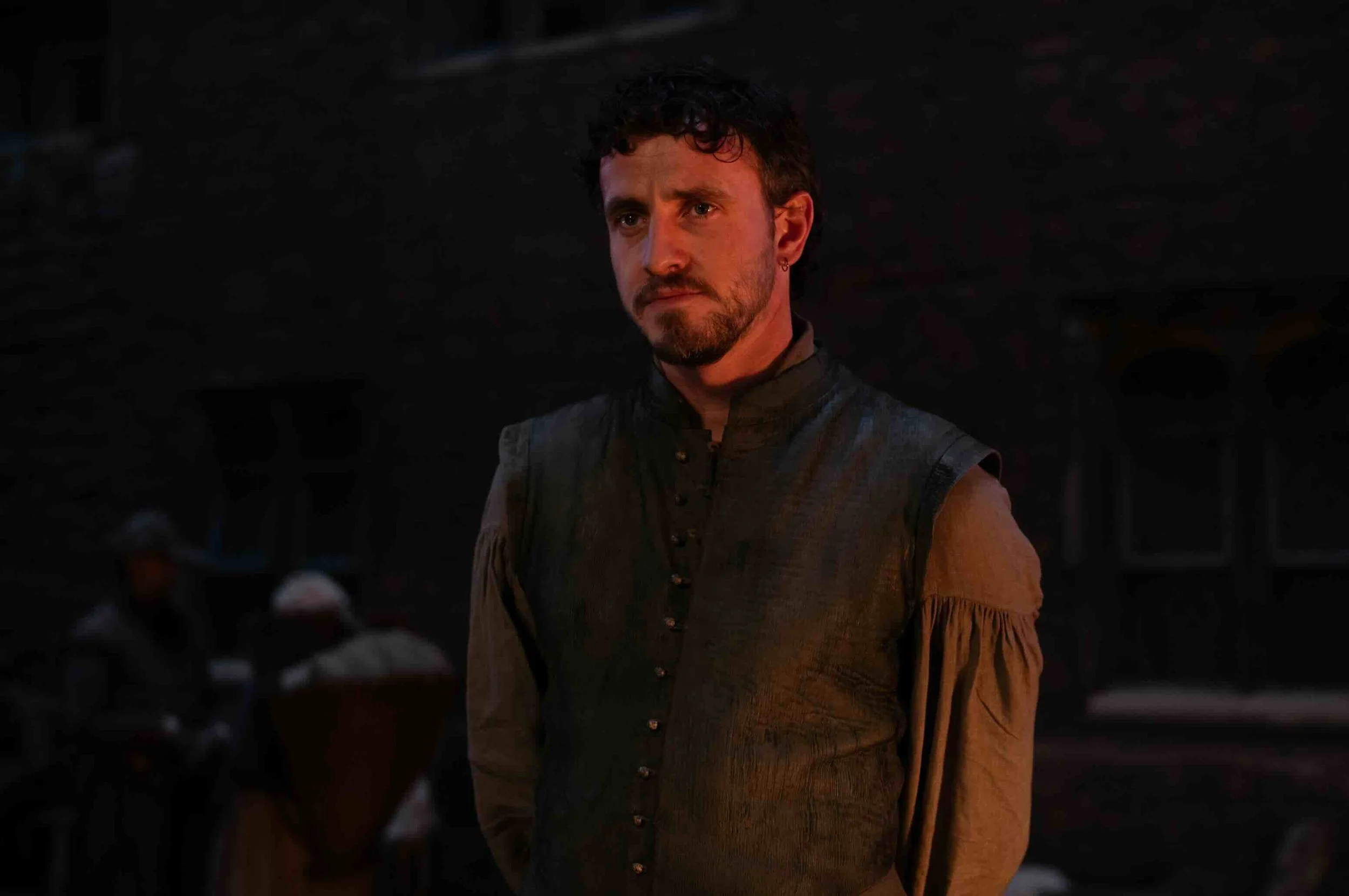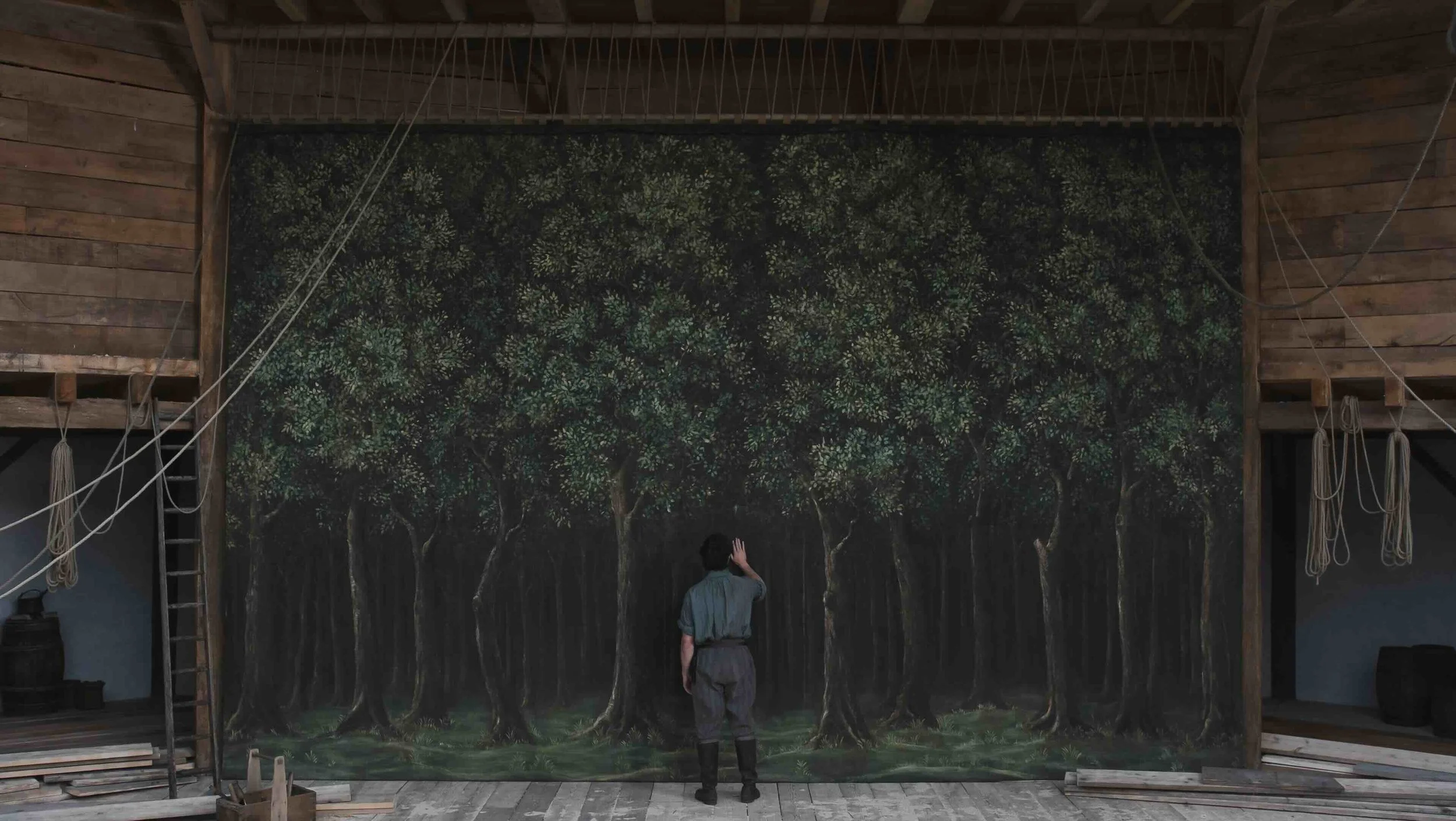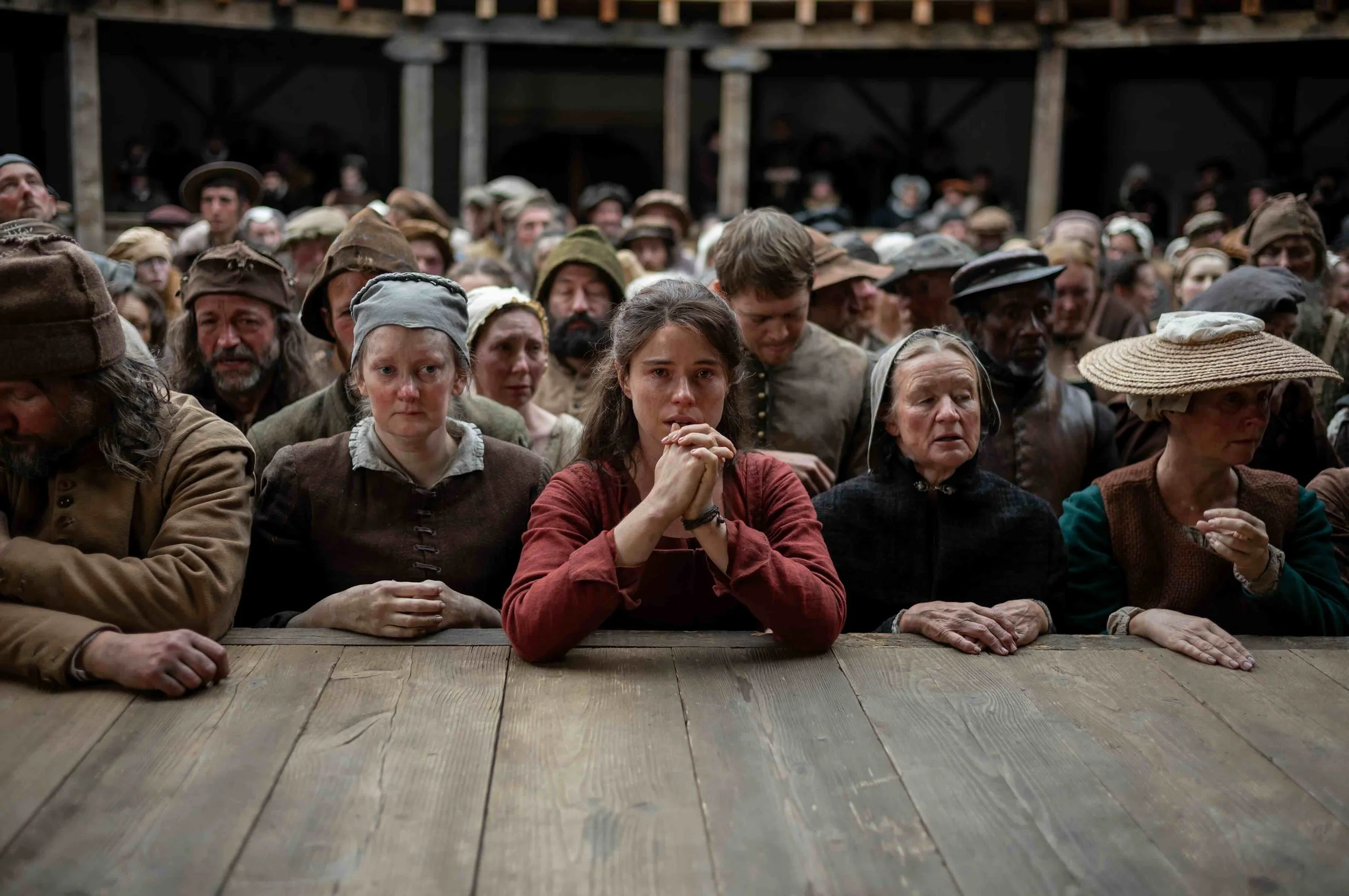Hamnet
A Review by Ava Bellows
Jessie Buckley stars as Agnes and Paul Mescal as William Shakespeare in director Chloé Zhao’s HAMNET, (2025) Photo by Agata Grzybowska - © 2025 - Focus Features LLC
HAMNET
A review
by Ava Bellows
When I was about six or seven, my parents showed me The Little Princess. I sobbed so violently through it I could hardly breathe. And when it ended, I told them: “That was the most beautiful thing I’ve ever seen—and I never want to see it again.”
I felt something similar watching Hamnet, but this time, I can't wait to see it again. Maybe because now, older and more weathered, I understand that beauty and grief are not opposites. They are twins. They dress alike. Sometimes, they trade places.
Jacobi Jupe stars as Hamnet, Bodhi Rae Breathnach as Susanna and Olivia Lynes as Judith in director Chloé Zhao’s HAMNET. Photograph by Agata Grzybowska / © 2025 Focus Features LLC. All rights reserved.
Director Chloé Zhao's Hamnet is not just a film, it’s a ritual. A wrenching, radiant meditation on love, death, creation, and memory. Adapted from Maggie O’Farrell’s novel, it imagines the death of William Shakespeare and Anne (or Agnes) Hathaway’s only son as the spiritual origin of Hamlet, the play that would come to define grief, madness, and mourning for generations. But more than that, this is a story about the unimaginable cost of creation: to give life, whether to a child or a play—is to let go of your claim over it. To love is to lose.
The film is, without exaggeration, the most devastatingly beautiful thing I’ve ever seen.
It’s brutal, yes. I sobbed to an extent that felt almost unhealthy. But in every frame, every glance, every word unsaid, Hamnet glows with tenderness. It’s a story about grief, but also about transfiguration, the alchemy by which sorrow becomes story. In this way, Zhao doesn’t just direct a film. She conducts a seance.
Jessie Buckley stars as Agnes in director Chloé Zhao’s HAMNET, (2025) Photo by Agata Grzybowska - © 2025 Focus Features LLC
Jessie Buckley as Agnes is the soul of this film. She doesn’t perform so much as conjure. Her grief is primal, molten, unmediated by language. When she wakes to find her son lifeless beside his sleeping twin sister, she lets out an animal howl that cracked something in me. I know that sound. I’ve made it. Buckley’s performance is unguarded, incandescent, she does not act grief; she becomes its vessel.
And Jacobi Jupe, as Hamnet, is heartbreak incarnate. With Olivia Lynes as his twin sister Judith, the two children play a game of identity-swapping, at first a cheeky deception to fool their parents, and later, an impossible attempt to fool death itself. This Shakespearean device—twins, mistaken identities, roles reversed, is used here with such aching clarity that it hurts to realize how early children learn to trade places with pain.
Paul Mescal stars as William Shakespeare in director Chloé Zhao’s HAMNET, Photograph by Agata Grzybowska / © 2025 Focus Features LLC. All rights reserved.
Paul Mescal’s Shakespeare is a quieter tragedy. Brilliant and broken, he grieves by turning inward, into language, into memory, into art. Mescal excels at playing men who cannot save themselves, and here, he’s ethereal, less a husband or father than a ghost in his own life, estranged from the people he loves even as he immortalizes them. He cannot speak his son’s name without breaking, but he can write Hamlet. He can bring him back, again and again.
Because that’s what Hamlet becomes, in this film: a resurrection.
There is a moment small, almost imperceptible when someone asks, “Where did he go?” about Hamnet. It’s a question I’ve asked about my own ghosts. Where did they go? We don’t get answers. But we get echoes. We get stories.
And sometimes, that is enough.
Zhao, in her signature meditative style, lets the camera linger on hands, fields, breath, the small moments of domestic life, the ones that feel inconsequential until they’re gone. She crafts a world where grief isn’t a single event, but a presence that lives alongside the living. Agnes, moving through her days in silence, doesn’t just miss her son. She is half-submerged in the world he left behind.
Paul Mescal stars as William Shakespeare in director Chloé Zhao’s HAMNET, a Focus Features release. Courtesy of Focus Features / © 2025 Focus Features LLC
The final act of Hamnet, in which Shakespeare stages Hamlet, is the film’s softest thunderclap. It’s not triumphant. It’s not redemptive. It’s a quiet act of mourning. A desperate father trying to keep his son alive through poetry. In this world, creativity is not just expression—it’s survival. It’s how we process the unbearable. It’s how we bring back the dead.
Every time Hamlet is performed, Hamnet lives again. Every audience, every actor, every student studying the soliloquies is, without knowing it, attending a memorial service centuries in the making.
And this is what Hamnet understands so unflinchingly: art does not heal grief. It preserves it. It freezes the moment of loss so it can be witnessed forever.
Jessie Buckley stars as Agnes and Joe Alwyn as Bartholomew in director Chloé Zhao’s HAMNET. Photograph by Agata Grzybowska / © 2025 Focus Features LLC
Hamnet is not easy to watch. It hurts. But it is also a stunning, necessary beauty, a film that stares into the abyss and finds something gentle there. It reminds us that grief, like love, remakes us. That to lose someone is to become their echo. That to create anything, child, story, memory, is to surrender it to the world.
And maybe that’s the most we can hope for. Not to keep what we love, but to let it go beautifully.
WATCH TRAILER
HAMNET
DIRECTED BY Chloé Zhao
very laboratory








